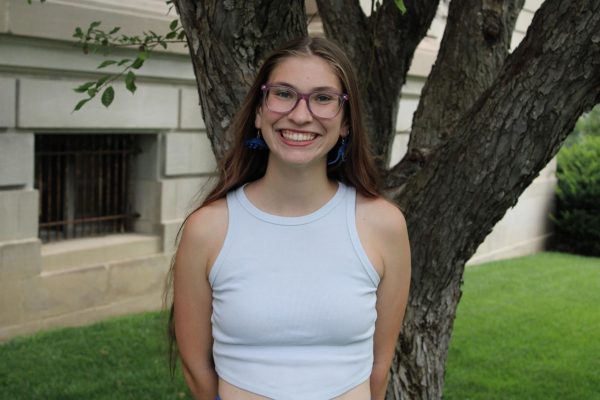Quitting the International Baccalaureate (IB) program means accepting that taking IB core classes becomes impossible.
I knew that IB’s “all or nothing” approach was not for me. Despite having planned on being an IB student since freshman year, a few days in IB classes made me reconsider whether a diploma was worth the unbalance of all-in academic rigor. I still wanted to take some IB classes. Yet, as I sat down to revise my schedule, IB core classes that I was academically ready for had one restriction: the student “must be pursuing an IB diploma.”
Central’s course catalog lists Honors-level and introductory classes as prerequisites to IB classes; I had taken these classes while in pre-IB. Yet, the simple fact that I would not be pursuing a diploma barred me from higher-level IB classes.
Central’s IB classes should be open to all students.
For the 2023-24 school year, Social Cultural Anthropology SL is the only IB class open to students who are not pursuing the diploma. The other 26 IB classes being offered require a student to be in the IB program, according to Central’s course catalog.
Completing the six to seven IB courses per year, plus the mandatory Extended Essay and Community, Activity, Service requirements, is a major time commitment. Requiring students to be enrolled in the entire diploma program limits the program to students with the time and absence of outside commitments. The Advanced Placement (AP) program, in contrast, allows students to take rigorous classes without committing to a whole sequence of courses. This point is mentioned in Jane McGill’s article about the Honors gap at Central; allowing IB classes to be taken without the pressure of a diploma could result in more people of color and economically disadvantaged students accessing IB-level classes; 60.4% of IB students are white, and 83% are not economically disadvantaged, as cited in McGill’s article.
Non-IB students having access to IB classes is nothing new. Another IB school in Nebraska, Millard North High School, offers IB classes to non-diploma seekers. Even with a program reportedly boasting over 90 diploma candidates in 2022, Millard North has still managed to share the resources of IB with other students.
Limiting IB also stands against the principles of the IB program itself. The IB program’s diversity, equity and inclusion statement declares, “we will explore new ways to open our programmes and our work to new languages, cultures and contexts.” Central’s IB program needs to open its classes to meet the context of each interested student. Not every student is in a place to devote their junior and senior years to the diploma program.
Similarly, Central prides itself on being one of three IB schools in the state. However, access to those IB classes is extremely limited in its current form. All students should be allowed to participate in the academics that Central is so proud of.
Logistics are said to be a challenge to opening up IB classes. Part of IB’s appeal is the smaller class sizes entirely focused on completing the IB tests and extracurricular parts of the diploma. A class with students who do not need to be taught to the test arguably may disrupt the class structure. However, students enrolling in an IB class will be aware of the diploma-driven flow of the material. IB also aims to develop “the whole person” who is “able to engage with people in an increasingly globalized, rapidly changing world,” as described by IB. The isolation of IB classes places diploma-seekers in a bubble that arguably contrasts with IB’s principles. Including outside perspectives in IB classes would be a strength.
There is no reason to exclude core IB courses from students who choose not to pursue a diploma. Classes besides Social Cultural Anthropology and Theory of Knowledge need to be open to juniors and seniors who are academically suited for challenging classes. Attitudes surrounding the exclusive nature of IB will also need to be repaired, and students will need to be aware that IB is open to them. Until this happens, IB will only be teaching inclusion in theory.














Noa Gilbert • Sep 28, 2023 at 4:34 pm
You’re so real for this one!!! An exclusionary approach is so contradictory to purported IB values.